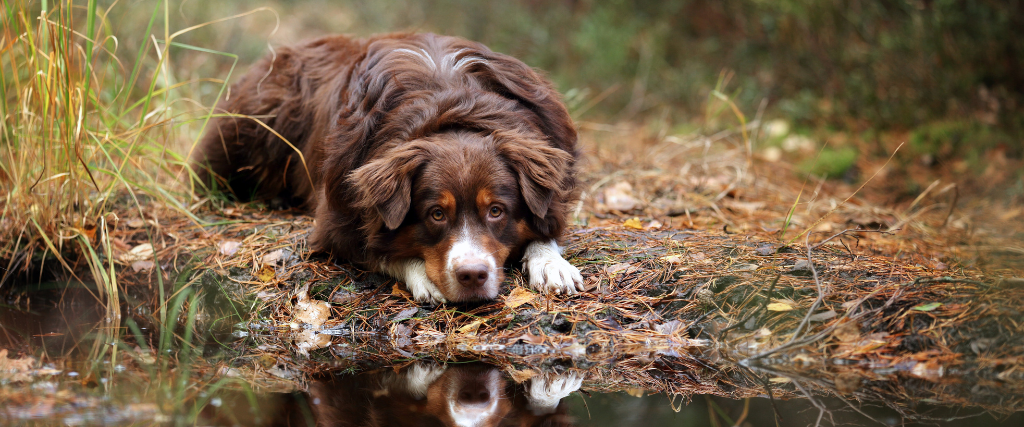What Is Leptospirosis
Leptospirosis is a disease that most dog owners have either never heard of or it sounds familiar, but they’re not really sure what it is. Leptospirosis is a bacterial organism that can cause liver and kidney failure in dogs and can be contracted by humans (zoonotic disease). Leptospira is most commonly found in wet environments and is commonly shed in the urine of wildlife. Your dog can be infected with leptospires either directly through infected tissue (i.e. a dead animal) or secretions (most commonly urine) and can also be contracted through indirect contact from contaminated water, soil, or food. Common routes of infection include drinking contaminated water or by entering the body through a cut or mucous membranes (eyes, nose, or mouth). Once leptospires enter the environment, they can live for months in the soil and are easily washed into bodies of water, including puddles.

Diagnosing Leptospirosis
Leptospirosis in dogs can be hard to diagnose because the clinical signs are often nonspecific. Common clinical signs include lethargy, fever, anorexia, vomiting, diarrhea, and weakness. Often elevated kidney and/or liver values will also be seen on bloodwork. Your veterinarian may be suspicious of leptospirosis based on clinical signs, vaccination status, and the likelihood of your dog being exposed to it. If your veterinarian is suspicious of leptospirosis, they will probably recommend specialized blood and urine testing.
Treatment For Leptospirosis
If your dog is positive for leptospirosis, treatment with antibiotics will be started, since it is a bacterial disease. Additional treatment will be needed if there is kidney or liver injury, which may include hospitalization with supportive care. Your veterinarian may also recommend that you contact your own physician about possible exposure. The sooner that leptospirosis is diagnosed and treated, the better the chance of recovery.

There are many different serovars (strains) of leptospira. Vaccines are available that protect against the four most common serovars that cause leptospirosis in dogs. No vaccine is 100% effective and there is the possibility that your dog could come into contact with a less common serovar. When possible, try to limit your dog’s contact with dead animals, wildlife, and stagnant water.
When detected early, leptospirosis can have a good outcome with proper treatment and supportive care. Discuss with your veterinarian if your dog is at risk, and if vaccination is appropriate for your dog. Since Leptospirosis can be fatal and can also be spread to people, we take it very seriously and recommend vaccination to most of our patients. Please ask us about it today!
